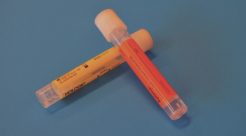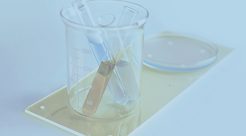SHINE SA have released a short video resource for health professionals providing advice on the current syphilis outbreak in South Australia. Syphilis is a sexually transmitted infection (STI). It presents a serious public health issue as it causes harm to the developing foetus and increases the transmission and acquisition of HIV.
The 5 minute video: ‘SA Syphilis Outbreak – Advice for Clinicians’ urges health professionals to be aware that syphilis is increasing rapidly in SA and that there is a need to respond with increased screening.
Syphilis screening has always been offered at the first antenatal visit. New guidance from SA Health recommends that clinicians screen pregnant people up to five times over the antenatal and early postpartum period depending on their risk.
For people living in high risk communities this includes screening at:
- first visit
- 28 weeks
- 36 weeks
- delivery
- six weeks postpartum
Appropriate and timely screening is necessary to prevent congenital syphilis which can cause miscarriage, stillbirth and neonatal death, as well as severe abnormalities in newborns. Like many STIs, syphilis is often asymptomatic and many people may be unaware they have it. Health professionals should be aware of the possibility of syphilis reinfection during pregnancy.
Partners of people that test positive for syphilis or HIV should be notified and offered testing and treatment.
In addition to increased antenatal screening, SA Health advise that testing for syphilis should be offered:
- Where there is clinical suspicion of syphilis.
- During routine STI screening in 16-35* year olds, particularly in those who are known to have a sexual network connection to the outbreak areas.
- To anyone who is diagnosed with another STI such as chlamydia, gonorrhoea or trichomonas.
- Anyone aged 16-35* who is having blood taken for another reason (e.g. during an adult health check) or who presents to the emergency department. HIV testing should be offered at the same time as syphilis testing, as syphilis infection enhances transmission and acquisition of HIV.
Syphilis serology can be complex to interpret, if there’s any uncertainty clinicians should contact a specialist such as a sexual health physician for further advice.
For more information read the SA Health Infectious syphilis outbreak Fact Sheet for Health Professionals.
Watch SHINE SA’s SA Syphilis Outbreak – Advice for Clinicians video.
For information on syphilis in pregnancy see SA Perinatal Practice Guidelines Syphilis in Pregnancy
For patient information read SHINE SA’s Syphilis Fact Sheet.
* National recommendations are that all Aboriginal and Torres Strait Islander people aged 16-35 years should be offered annual testing for chlamydia, gonorrhoea and trichomonas infection. However, in South Australia approximately 50% of syphilis cases have been in people over the age of 35. Therefore we recommend screening in all Aboriginal and Torres Strait Islander people aged 16-50 years. This information is adapted from the SA Health Infectious syphilis outbreak Fact Sheet for Health Professionals.
This activity has been made possible by funding from Country SA PHN.










